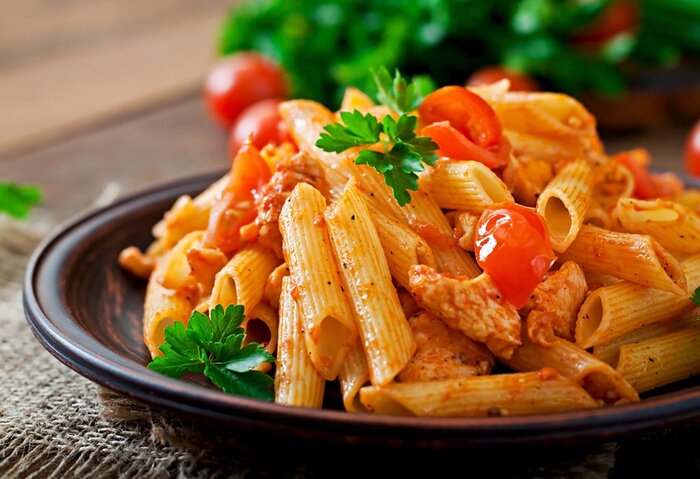Pasta Nutrition: Understanding the Facts About Calories, Protein, Fat, Carbs, and Vitamins
When it comes to nutrition, pasta is often a topic of debate. Some people view it as a carb-heavy, calorie-laden food that should be avoided, while others see it as a healthy and satisfying meal option. So, what is the truth about pasta nutrition? In this article, we will explore the facts about pasta nutrition, including its calorie content, protein, fat, carb, and vitamin profiles, to help you make informed decisions about your diet.
What Is Pasta?

Pasta is a staple food made from durum wheat flour, water, and sometimes eggs. It comes in many shapes and sizes, from spaghetti and linguine to penne and fusilli.
Calories in pasta - How Many Calories In Pasta
One of the most common concerns people have about pasta is its calorie content. The number of calories in pasta depends on the type of pasta and the serving size. Generally, one cup of cooked pasta contains around 200-220 calories.
Protein In Pasta - Is There Protein In Pasta
While pasta is often associated with carbs, it also contains a decent amount of protein. One cup of cooked pasta contains around 7-8 grams of protein, which can help keep you feeling full and satisfied.
Fat In Pasta - Does Pasta Contains Fat?
Pasta is a relatively low-fat food, with one cup of cooked pasta containing only around 1-2 grams of fat. However, the type of sauce you add to your pasta can significantly increase its fat content.
Carbs In Pasta - Is Pasta High In Carbs?
Carbs are the main macronutrient in pasta, with one cup of cooked pasta containing around 40-45 grams of carbs. This can make pasta a good source of energy for those who lead an active lifestyle.
Vitamins in pasta - Are There Any Vitamins In Pasta?

While pasta is not a significant source of vitamins, it does contain some important nutrients. For example, one cup of cooked pasta contains around 15-20% of the recommended daily intake of folate, a B-vitamin that is important for cell growth and development.
Types of pasta - What Types Of Pasta Are There
There are many different types of pasta, each with its unique nutritional profile. For example, whole wheat pasta is higher in fiber and protein than regular pasta, while gluten-free pasta is suitable for people with celiac disease or gluten sensitivity.
Pasta and Weight Loss - Is Pasta A Good Way To Lose Weight
Contrary to popular belief, pasta can be part of a healthy weight loss diet. As long as you control your portion sizes and choose nutrient-dense sauces, pasta can be a satisfying and filling meal that can help you stay on track with your weight loss goals.
Pasta Recipes
Pasta is a versatile food that can be incorporated into many different recipes, from classic spaghetti and meatballs to more adventurous dishes like shrimp scampi and pesto pasta salad.
Is Pasta A Healthy Food?
Yes, pasta can be part of a healthy and balanced diet, as long as you control your portion sizes and choose nutrient-dense sauces.
Is Pasta Good For You?
Pasta can be a healthy and nutritious food when consumed as part of a balanced diet. It is a good source of carbohydrates, which provide the body with energy, and also contains some protein and fiber.
Whole wheat pasta is an even better option, as it is higher in fiber and protein and has a lower glycemic index than white pasta. Additionally, pasta dishes can be made with healthy ingredients like vegetables, lean proteins, and healthy fats, making them a well-rounded meal.
However, portion control is key, as pasta dishes can be high in calories if consumed in large amounts or with heavy sauces. It's important to choose nutrient-dense sauces and toppings and to control portion sizes to ensure that pasta is a healthy addition to your diet.